Author’s background: Went to a public university in Georgia, have been around many interesting places though.
Overall these days, I’m unimpressed by false prestige and appearances and more interested in real knowledge and competence. I look at items, people, places, and break them down into component parts to understand them, so I find it harder and harder to be surprised as I get older.
It happens every day
At a get-together near Harvard, a girl from UConn was surprised that I came up from Georgia to visit for a while. From this, I’d surmise that she came to Boston to visit the guy at Harvard (he was at the same get-together) due to the Prestige Trap (aka the incorrectly attributed halo effect due to schooling, company, or appearances), where she thought she was lucky to get a guy like that. She wouldn’t have said that if she ran in the Bos/NYC/SF highly mobile circles. I remember that there was someone above me in high school who got into MIT and came down my city for a hackathon with a team. At first, I thought the team was “cool graybeard hacker dude,” “well dressed tech woman,” and “fashionable and well-spoken minority.” It turns out they were from our hometown because he was recovering from a surgery and took a semester off, and then the impressions vanished.
Some other examples: people being impressed if I say I go to Georgia Tech (I do not feel like it was that good), people being impressed by someone who did internships at well known companies, dating a person because who seems attractive but then finding out that their living life is slob-like, thinking of this one person from high school who got into a really good college, so for a moment we thought that they were secretly super-competent, until 4 years later we realize this person really hasn’t done much at all.
And perhaps what I’m stating is a “luxury belief”: college or prestige is fake and not worth that much to me only because I have it and because I’ve done certain things, making what I’m saying harmful to others. Yeah, I agree. If college is your best option you should do it. However, I think even if I went to a top college, I might not be totally enthused with my experience at the end of it.
It is fact that college is a scarce resource, that upward mobility is a scarce resource, education, access to networks where things are happening, and so on, but what’s more damning is that those who are responsible for admissions aren’t responsible for poor choices, by which they squander the nation’s potential. I’ve removed this statement as it assumes there’s some sort of plan behind the top universities and that they’re not just running in autopilot mode.
I talked with this guy once who got his exchange programs (Critical Language Scholarship) cancelled during COVID year. He spent 1-2 years doing online classes without meaning and now at 22 he still had student debt to pay off. I talked to a millennial who felt cheated too, graduating into the 2008 job market when he still believed in the idea of college as a set financial payoff. If you fall through the gaps somehow, and that can be not getting admitted to a good college, life can in many ways be ruined, but it becomes OK because you then accept the greatly limited world you inhabit.
Something that you only gain in retrospect is being able to see “through” things: I would be able to decompose all parts of a website, the Common Application’s forms and divs and technologies used, get an impression of the types of people working in an admissions office, see the common tools used across colleges (Gradescope, Canvas, Edstem/Piazza) as part of the modern procurement of goods and services, and realize none of it is that special in the end. College is overhyped, the process by which is likely a lack of grounding from knowing people of different ages and places.
The educational landscape
Supposedly, Columbia is well known for cash cow Master’s programs. I hypothesize they serve as a source of income for the college while giving participants a perception of prestige. Harvard Extension School and their Master’s degrees, I’ve heard, are not that rigorous. To the discerning and those in the know, it will be obvious. What I mean by that is competent people leave similar online traces: almost none or only very positive things. Incompetent people brag and misrepresent their degree, repost spam on LinkedIn, blather on Twitter, and so on.
For example, people who do a Master’s in CS are extending their schooling because they probably couldn’t find a job. It’s an anti-signal. American study abroad programs that last 6 weeks at Oxford are basically renting the Oxford dorms while the students there are out. The actual prestigious programs are probably like the Williams Oxford program or the Columbia University Sciences Po Dual BA, not just “studying at Oxford” or doing a “Master’s at Columbia.” And it’s not the program that gives the prestige but the quality of people that make a place prestigious.
Personally, I think such cash cow programs dilute a school’s brand, but I wonder how important brand even is and if these programs are a necessary evil and filter/trap for the unaware. Nobody has an incentive to stop them. People pursue scale and money in spite of quality.
Is gatekeeping the answer?
It’s conceivable the type of organization that selects for the best people isn’t one based around gatekeeping. In college, there was a rowing team where anyone can join, but how attention is allocated depends on whether people show up for 6AM practices. I think open source software is similar. The purpose of interviewing is to match short-term impressions with long-term performance, but it’s a very lossy metric. I’ve come to the realization that colleges, interviewers, and investors are often bad at judging real talent and competence, and another confounding factor is that it can be hard to understand people more competent than you. In the case of college admissions, the cost of making bad admissions decisions takes place over decades, not years.
Why do people go to a ‘prestigious’ school post-grad?
I think it’s possible for people to fall into this trap post-graduation if they don’t have enough exposure to people from other schools to realize that they aren’t all particularly that special, so they feel the need to go get a degree at a better known school. That said, the most talented often do come from those schools. I’ve seen it three to four times that people go for a “prestigious” Master’s, but the more important question is whether they did it for the right fit or the name.
It’s different when someone from abroad comes to do a Master’s at the top schools. In their case, if they have to come to this country, they might as well go to what’s known as the best one. I generally see that these people have a high level of expertise. And self-aware people who go for a Prestige Trap Master’s end up leaving it and developing their own skill anyways.
How you feel and how you are and what you see
When I started college, I was upset that I had to eat at Georgia Tech’s Brittain dining hall. I like nice things and Brittain seemed not nice, not that it was objectively bad but in the fact that it seemed to imitate prestige while having no part in it. In fact, it seemed sophomoric. Although this seems bad to say, put yourself in the shoes of a student attending who has high hopes and ambitions and none of the material realities of it. What’d be worse than that, however, is going to a “good” place and resting with a sense of complacency, something that I’ve seen a few times as well.
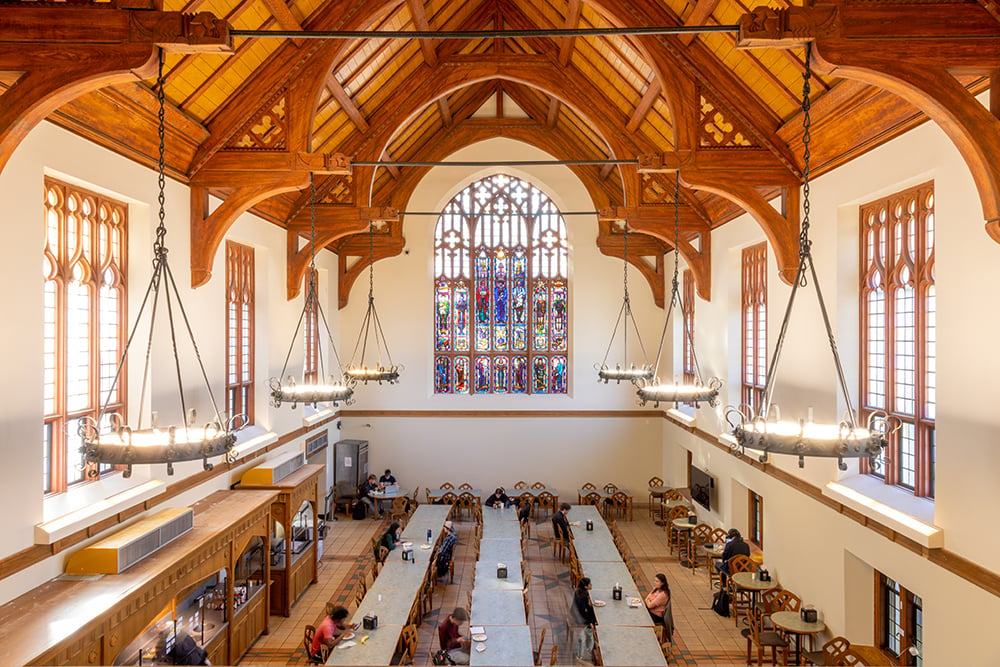
The image I have above of Brittain looks cool because of the chandeliers, but on the ground the feeling of the tables, the tile, the design choice, and the aesthetics just felt cheap. The main tell is the balance in the furniture. Compare that to Dunster dining hall at Harvard below. There’s also a certain community and network feeling you get at top schools just by being there and the way they are structured in terms of undergraduate life, meeting spaces, and so on. You get to know your classmates’ parents. You see the same faces.
Nevertheless, the people who created these institutions are not the people who currently inhabit them, as the wooden circle/molding in the top left of the picture is no longer able to be manufactured. It doesn’t mean that the ruling party in universities (Democrats) are superior to the opposition (Republicans), it just means that they happen to inhabit the old institutions of America, not that they built the leading institutions of the age.
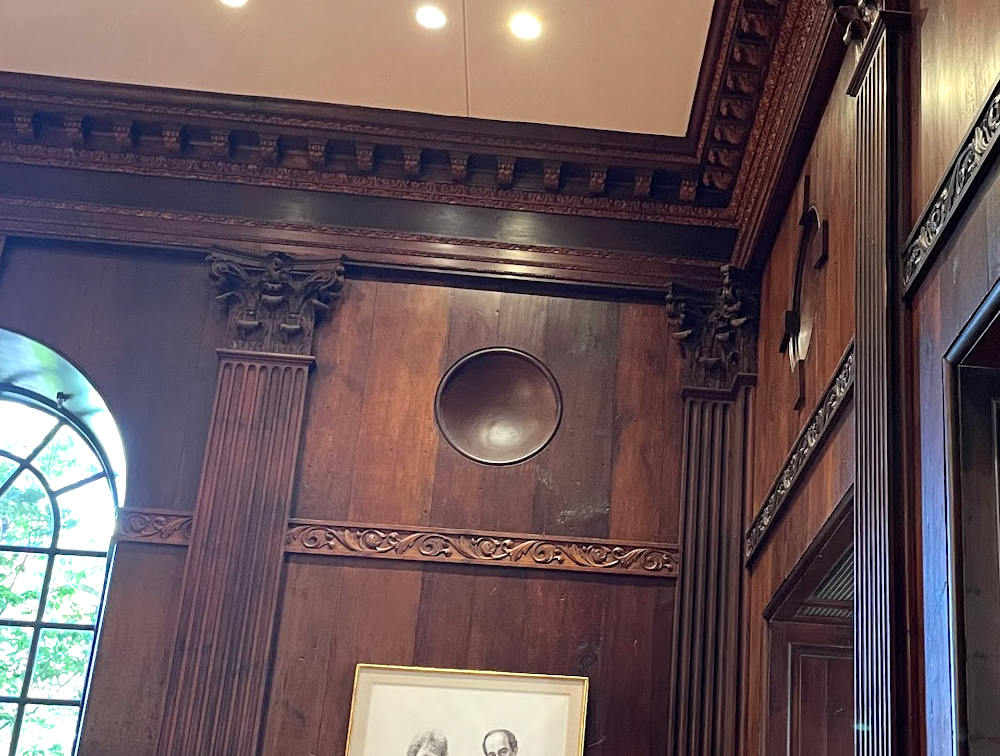
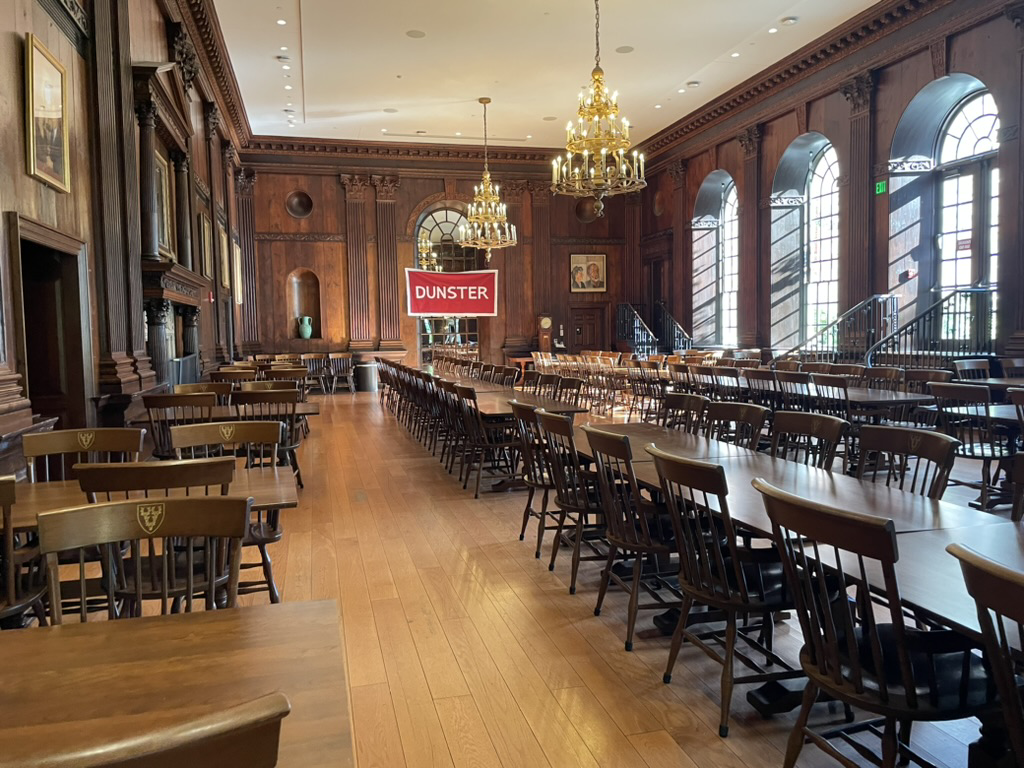
But if you come from a poor and uncultured family, you’ll face the same problems no matter where you go, which is that you’ll struggle to adjust to life itself because the entire culture of people around you consists of people making funny jokes, the only culture is TV, social media, and bad YouTube videos, all your material possessions come from either Amazon or Walmart, and you have a serious variety of misconceptions about the nature of certain places, countries, ideas, and people.
Trash, Prestige, and Globalization
But at the same time, the trash that Harvard students throw out represents another side of things, closer to reality. It’s still just a dorm. Dorm life has certain annoyances. A graduate student going to a well-known school still might be annoyed at living in dorms and not having their own space. Students who go to Harvard are still human, hence they still acquire goods from the modern industrial system of production as evidenced by certain brands. Perhaps they buy brands that are more expensive but are not actually better in quality and other people don’t realize this, falsely elevating their prestige and competence.
On a side note, the Target near Harvard is quite run-down, similar to the Costco in Boston, which surprised me coming from Atlanta, but it makes sense considering the relative ages of the cities.

TU Dresden doesn’t have the wooden “prestigious feeling,” but it was clean, orderly, well-designed, and top tier in its own way that Brittain dining hall wasn’t. I have a lot of respect for the European minimalist style of design that developed in the past few decades.
It’s better to have something functional that works, even if it is simple, than an imitation of prestige.

I was upset with Georgia Tech’s dining hall because I had none of the things that would give someone a sense of self, such as a good family, a reputable job, material assets, unique skills in one area, and so on. I was a bad pianist and mediocre at graphics, things I thought I was at least decent at in high school, but it turns out I was taught piano in a way that promoted memorization rather than principles; stagnance rather than generativity; solitude rather than community and meaning. But looking back now, I ended up doing a lot in college. And in a way, that makes me someone, sort of. College is where you either find out your skills are worthless and give up or where you decide to pursue being the best.
But what effect does this have on people? I can tell you: the average person is going to be miserable. If everyone genuinely buys into this culture, then they have to be. Their talents at piano playing, or cooking, or programming, or any form of artistry or scholarly pursuit are denigrated and count for naught. The world has become too big—-it did not use to be so big, people so powerless of what is going on.
Now what does this mean of people who put pride into their places, titles, cars, graduate degrees, and so on? If we identity this prestige as fake, we take away their sense of self and meaning. We will break what they had sacrificed so much to achieve.
There are enough artists and writers with an MFA from Yale who didn’t make it, enough academics and scientists who were never recognized. It may be that they claim their titles not out of pride but out of insecurity, clinging to something without which they would be nothing. How many people would sit down and accept that?
Even if you make it, the way up is littered with the bodies of people who didn’t. Is it possible for a society where everyone is afforded some respect and dignity?
Behavior leads to Wealth?
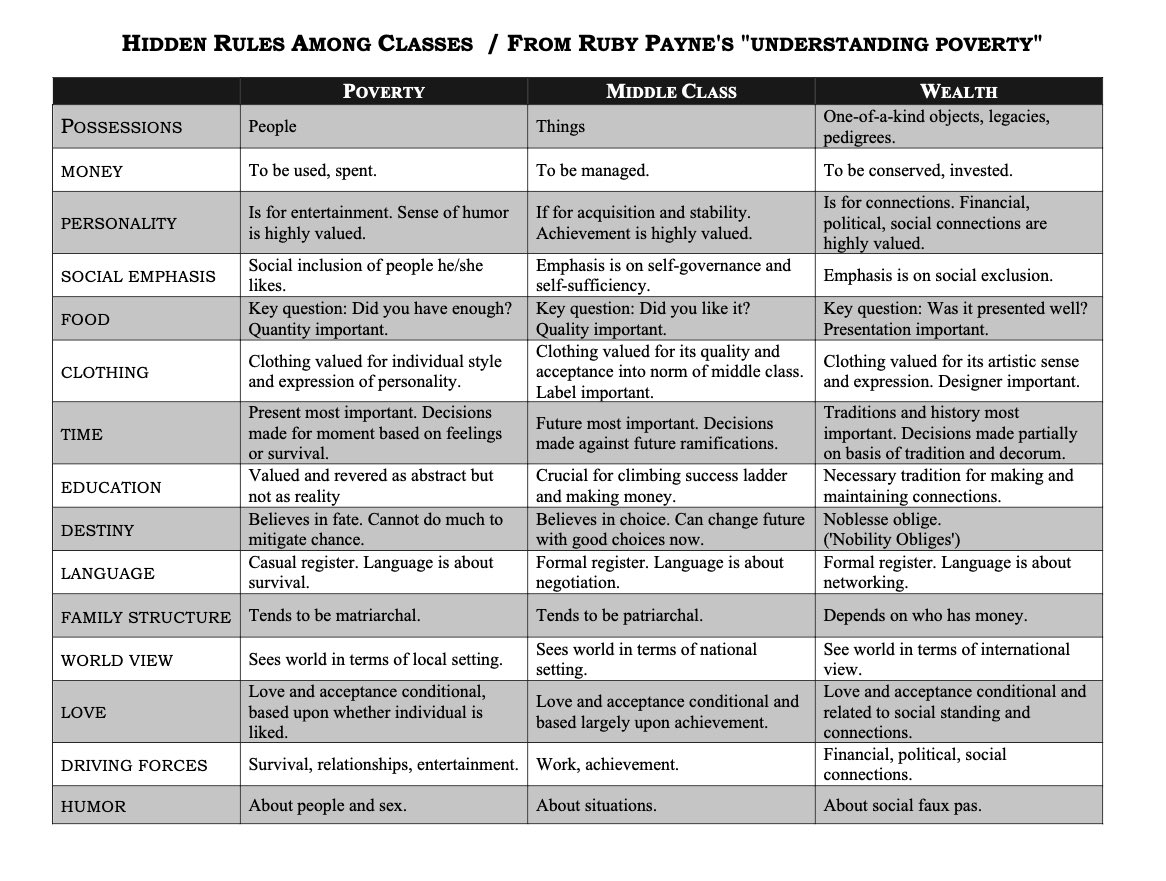
The above graphic is generally true in my experience, as much as people to the left of it want to deny it and say it doesn’t make sense.
In Augusta, GA, where people bragged about getting an SAT score over 1000, and this was at one of the better schools in the entire town, the favorite activities of my classmates were about being “funny.” The main activities were talking about other people and word banter, such as “T-Mobile internet is bad, we call it T-Bad.” It was quite funny at the time, but you can’t eat feelings, and I need to survive.
People revered the idea of prestigious colleges and somebody getting into a “good” college was news in the town.
There was an older guy I met at the Horatio Alger Conference who I talked to from time to time. He would collect small statues, spoke about his experiences doing finance with companies, and ask me very specific questions such as “What is the level of the Rhine River?” when I was in Germany in a way that gathers information rather than feelings.
I never saw myself as someone who could stay poor forever. I sold things on eBay, worked numerous internships, got a credit card at 18, and just kept reading and learning about things. I kept looking on Google Flights, but now I think I’ve traveled enough and I need to make money. My ambitions have taken a damper due to health issues, however. But during all my experiences I was just trying to build my strength, through opening a European bank account and understanding the SEPA system, walking through Luxembourg and noting all the Chinese banks and free eduroam everywhere (this international view will help me should the USD go boom somehow, even though the savings I do have are small), and just THINKING ABOUT HOW TO NOT BE POOR!!!
Because I thought that my father being a post-doc at Columbia and working at Harvard Medical School would mean that we are at least middle class, but instead we are mired in pain due to what I believe are the following traits:
- Belief that destiny is destiny and you cannot change it
- Lazy attitude toward work (whenever I work he says I am doing too much)
- Fixed mindset, believes reading things is unnecessary and everything is already known
- Limitation in mobility and things seen (we never traveled)
- Disregard for history and old books
Clearly it was not lack of association with prestigious institutions that led to my family’s destitution and poverty! It was mindset!!!
Regarding money: when I was at the Future of Publishing Conference in New York, I saw how one of the panelists on stage who ran a multi-million dollar business had much more sway than the other people.
Regarding appearances: I was sitting in Dunster hall, and this one Indian guy’s mom was talking about how “people appear is very important.” I think in the above graphic, food being presented well is not the important question. It should be if the food is healthy. But with regards to clothing, I often ask myself the reason people wear their clothes and style themselves in certain way, and what cultural aspects people imply by the way they do such things.
I’m uncomfortable with the idea of love and acceptance being conditional, but it makes sense in that people must benefit from associations or harm themselves. There is a harsh rejection and a soft rejection, and too often people choose hardness when softness gives a level of understanding.
Regarding the obligation of nobility: I didn’t understand this at first, but I’m coming around to it. Imagine you were born with certain abilities that few other people had. In a way, the burden of guiding society is yours because so few others are capable and able to do it. I have decided that I will dedicate the rest of my life to the benefit of health, education, and material well-being, so long as I can overcome my own issues first.
There are a few things I’m unsure about, but I generally agree with things in the right-two columns.
I’m not happy with the direction university culture is heading
Georgia Tech recently built a new student center not representative of learning. This feeling is characterized by loud electric billboards, fancy modern furniture with little soul, random slogans, and too many people.
I would describe university as a place that is becoming more and more a giant playground funded by federal loans and parents’ money and less a place of anything meaningful.


There have been a variety of bad branding changes by various American universities that are representative of the continued enshittification of higher education. The choices of design made are reflective of internal rot that has already taken place against a backdrop of overall cultural rot.
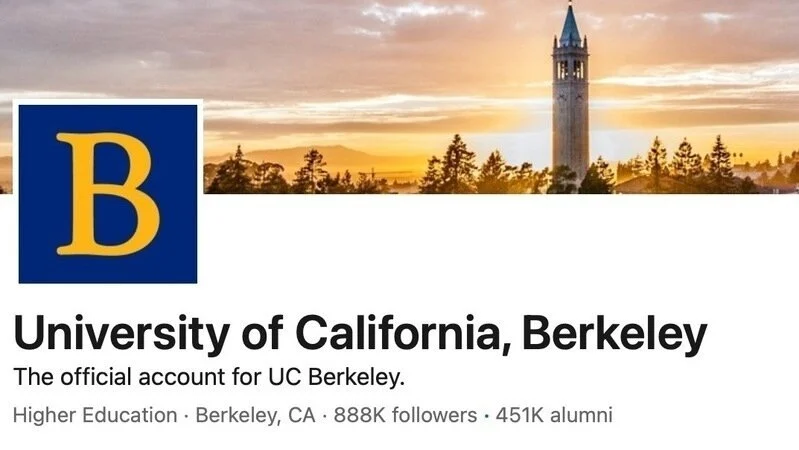


The ongoing pattern of stratification in ability in society is based on the combination of unique individuals’ opinions and experiences. It is emergent. If someone feels like a place is right, then they settle there. If they don’t feel like a place is right, such as a company going the wrong direction or a house being too messy, then they leave if they are capable and have self-respect. I think my standards are very high, so a place like Munich appeals to me. Unfortunately I am not German so I would not be able to enter that world, meaning I just have to build my own world based on my own perception and expertise, hopefully becoming a desination for those with similar mindsets.
I thought at first that Boston would be a desination location, but the T feels run down and the security guards seem like meandering zombies who don’t actually enforce anything. New York subway just seemed like a shuttle for the poor and disheveled. Maybe it was always like this. I remember being a kid, confused at someone sleeping on a bench on Reservoir station many years ago. I don’t know, maybe life just isn’t perfect and I won’t find what I want anywhere. I used to be angry and confused at why rich people live in isolated big houses, then I thought about maybe it’s that they don’t care and are annoyed by regular people, but now I think that it’s perhaps too difficult to change the world so they just give up and carve up their own little bubble. But the simple conclusion might just be that they don’t think that much about things, so they just copy what others do, which is buy large houses.
Degenerate Behavior
I didn’t initially believe it at first, but a guy who went to Phillips Andover told me that the kids there were drugged up on another level. It disgusted him so much that he didn’t want to go to any of the ivy and private northeastern colleges and went to Georgia Tech instead. I still think Georgia Tech has a lot of problems being a public school, which I’ll cover in a different post. Supposedly, Pan Shiyi, a rich Chinese businessman, has a son that went to class high so much that he had to build a new sports complex so he wouldn’t get kicked out. But at the same time you have to try and understand people in these positions, their motivations, the way they think, and the suffering that they feel.
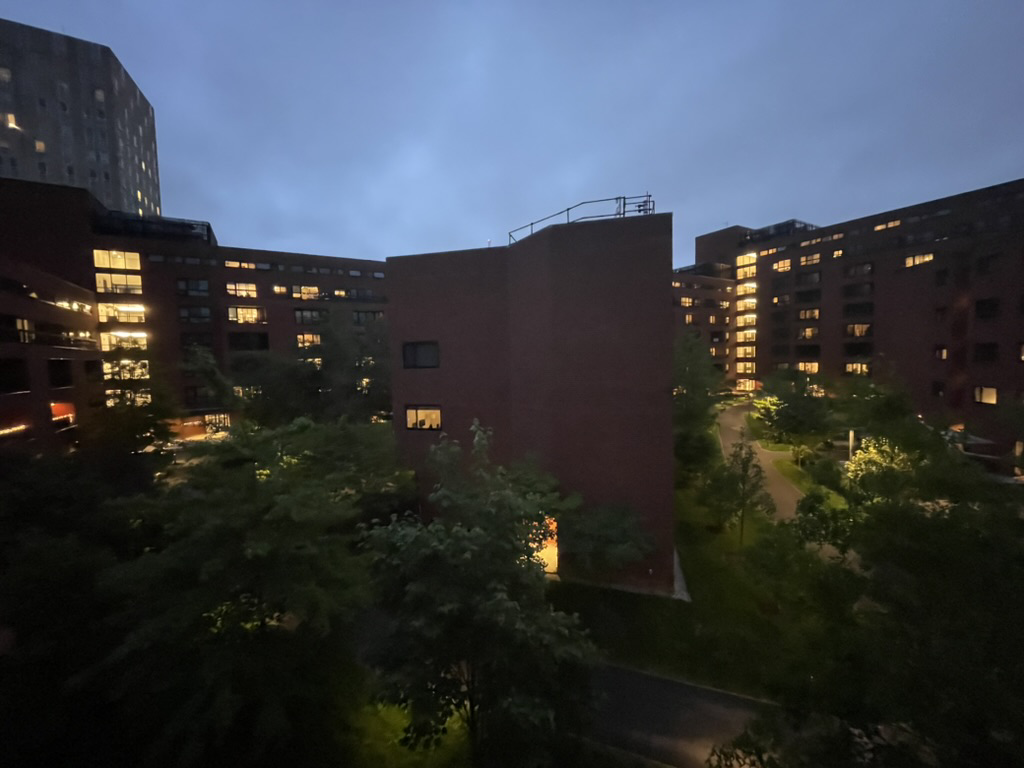
And it’s not until I was chilling at Harvard Business School apartment complex balcony with two guys smoking weed (I didn’t) and then some roommates/guys from South America walk in and generally carry themselves like monkeys in their trash-strewn apartment that truly understood the first guy’s statement in the previous paragraph. This parallel reminds me of the book A Hope in the Unseen, where the poor have to work to fend off squalor while the wealthy see it as an afterthought to their “cool” demeanor.
Back to the topic of degeneracy: think there’s a key distinction between people who enjoy that type of stuff naturally and those who sort of partake to understand and don’t do it, and another is that it’s one thing to consciously fight against bad things every moment and another to indulge in it, and I think a lot of people in the United States have just given up that fight. Smoking cigarettes, marijuana, and vaping have become popular again.
And I’m not sure how to only work with people who have similar values when so few people seem to exhibit traits such as: not lying, not stealing, not being overly susceptible to peer pressure and being liked, and so on. But I’m not that dogmatic to limit myself that way, hopefully.
I would sit down and look somebody in the eye and think I could determine if they were honest or not, Hankey last year told the Los Angeles Business Journal, which ranked him as the sixth-wealthiest person in Los Angeles. I got burnt several times.
I get the impression that these are some of the types of people being hired into companies starting to suffer cultural problems such as Google. It’s like once you become well-known, you become a target for enshittifiers and grifters. So the best place to work is somewhere you’ve never heard of.
In this post from the FT, the prestige of some big companies is explored. My gut feeling is that large companies in the US are closer to the government, so they get more distributions of fiat money to keep them alive and to vacuum up labor from parts of the economy, and perhaps most people don’t know how to develop personal expertise, so these companies stay alive by being constantly hired for one-offs where they do a bad job. Like a guy who gets girls because they think he’s a cool guy but he can’t retain them, yet there are enough people attracted by the prestige trap to keep coming.
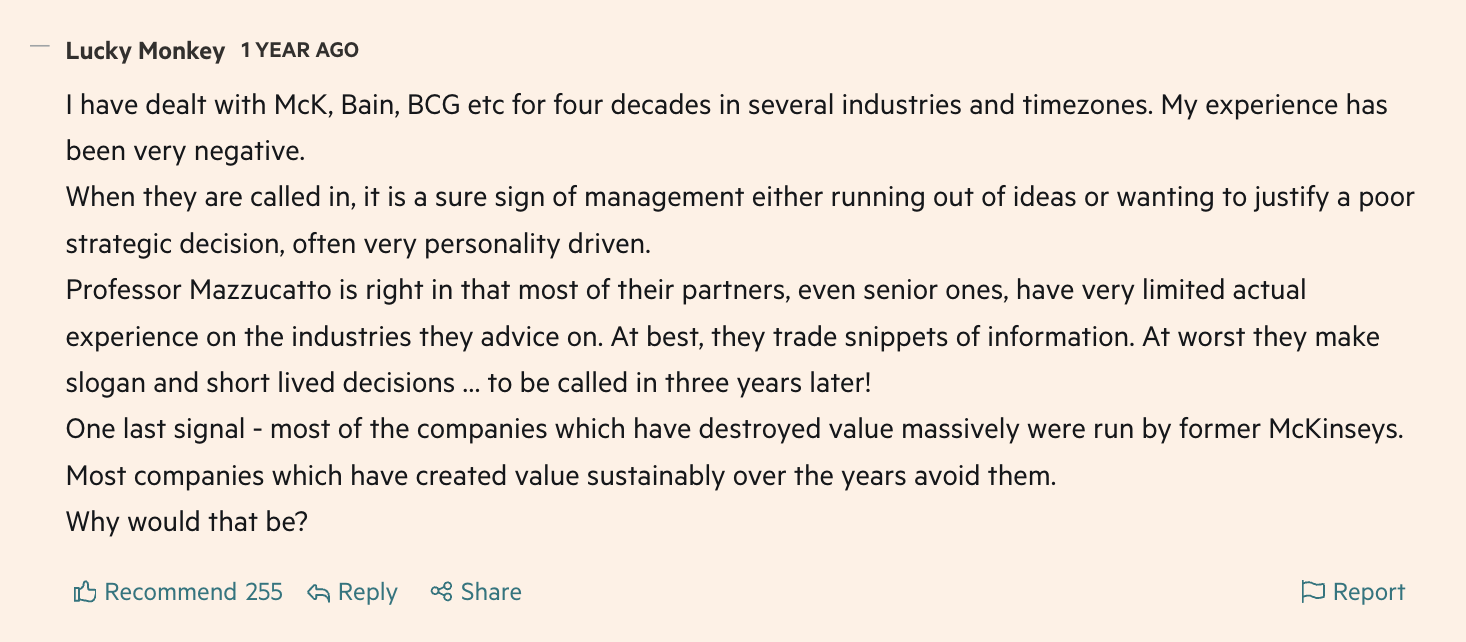
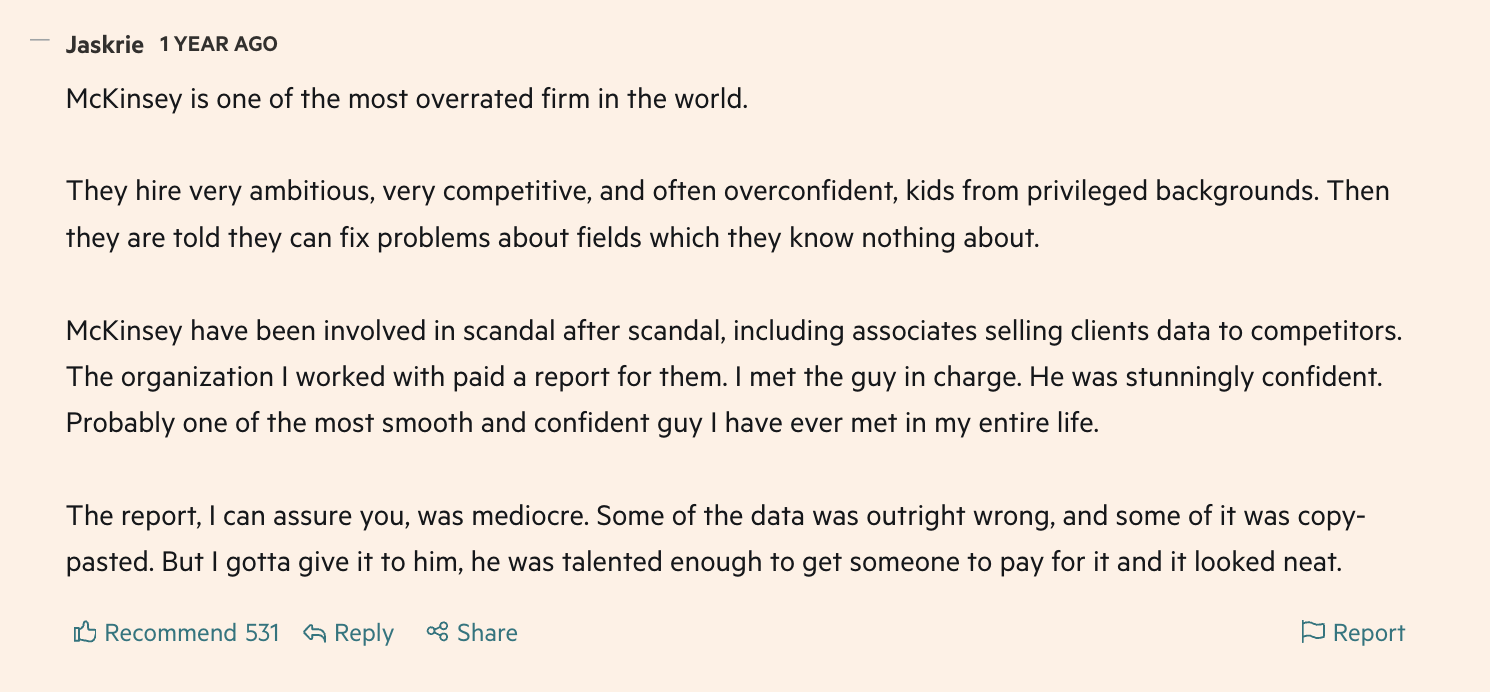
What does this mean for the future if these are our so-called leaders? Shamus Khan in his book, Privilege, says “omnivory in consumption” and “ease” are hallmarks of the upper class. Wealthy people often buy art. I’ve heard donations of art are then used as tax writeoffs. But what about the industrial and logistical power that underpins the modern world? If someone is moving from house to house, unsettled, lacking good food to eat, these are bigger priorities than feelings and consumption. In society, I meet a large amount of people who seem to prioritize the latter over the former. Material development is the foundation for spiritual, intellectual, and cultural development. I suspect it will take a famine for many in the modern world to truly understand this.
But it may be that many lack in powers of outside perception and self-perception. So the entire building is falling down while they’re completely mum.
Competence and Correspondence
Another factor is that correspondences between areas of competence are not perfectly related. Interviewing well and doing good work are often not related. Attractiveness is not cleanliness. Degree is not intelligence and perceptiveness. And in the digital age people do all sorts of things with photos to manage their impression one way or the other. A key skill for success in the global age will be interpreting all these signals. What is someone actually good at and speaking from truth? Personal history is usually the most truthful, but interpretations may not always be true.
I’m pretty sure I could identify who would be good to work with by living with them for a while. It wouldn’t necessarily be enough to rule someone out though; long-term performance is still variable at a young stage of life.
I’ve seen enough of the world to know what true value is. Health, family, self-understanding and actualization, time, not getting your attention distracted, actual quality work, respect and conscientiousness for others. I’m at the stage of my life where I need to make money and contribute to the world. A “prestigious” post-graduate fellowship is just more traveling, a bigger headache, and a further step from my actual goals.
Networking is actually kind of annoying for me because verbal ability is a poor predictor of someone’s work. I’d much rather people walk around with their resume, portfolio and website and we could talk about that, but the risk is that it makes people seem too judgmental and may lead to bad dynamics. Someone told me that just by showing up to a networking event, that shows we prioritize our career, so it doesn’t matter that we may not have a perfect portfolio yet.
Jimmy Carter on Aging
My thoughts on learning tie in most closely with Jimmy Carter’s view on aging:
So then, when are we old? The correct answer is that each of us is old when we think we are—when we accept an attitude of dormancy, dependence on others, a substantial limitation on our physical and mental activity, and restrictions on the number of other people with whom we interact. As I know from experience, this is not tied very closely to how many years we’ve lived.
It’s not only the school that matters. When people fail to keep moving forward in life, doing things, growing, and understanding, it doesn’t matter if you were president, leader, or anything prestigious. Hence, it doesn’t matter what school you went to but where you are now, how your attitude toward learning is, and how quickly you learn. However, I’d be lying to everyone if I didn’t say that there is a strong correlation between top schools and these attitudes.
There is a caveat on going your own direction: you do have to be skilled enough to reach or see the peak before going your own direction. One cannot innovate without mastering the existing framework. If one struggles with getting an internship or job, they will likely have difficulty going their own way with work due to a lack of understanding established structures.
How I feel now
Having done numerous internships and worked with people from numerous schools, I don’t feel so strongly attached to the idea of school prestige because I’ve experienced these things firsthand. Confidence comes from experience, understanding, and a good view of yourself relative to the world. A lot of foreigners come to the USA, attracted by the prestige and idea of working for “big tech companies.” I never had that as an explicit goal as an end in itself, but a necessary goal on the step toward mastery. I’ve seen a lot people come here thinking it’s an end goal, meet that goal, and then change their goals and understanding. But they had to get their goal first.
I didn’t have the mindset change until I had lived in Germany for a year and interned at Alto. Before that, I was still attracted to the idea of tech companies, trading companies, and it was because I viewed those as a “peak” to achieve. I felt like having only interned at non-tech companies, I didn’t have the full picture yet. The deeper question people have in such situations is a question of: am I inferior and incompetent if this is the best place I’m able to get to?
There’s’s an inverse relationship between how accepting people are and their level of competence. In a way, there has to be. Some religious places that “accept everybody” have a lot of people that drag down the fitness of the group. They’re only there because otherwise they’d be alone. People can be exclusive in a friendly way or cold way, but the core message is that they realize certain people won’t contribute to group fitness.
It’s often difficult to maintain an internal balance. Oftentimes, when someone of high skill is around tons of people of low skill, they might get depressed and withdrawn. I often think of this Iranian guy working at my local Home Depot. I think he was a professor or something.
After interning with people from well-known schools and understanding, sorta, the culture and types of things in California, making a decent intern salary, and seeing experiences from Georgia Tech graduates at tech companies, I have a more realistic eye. After living in Germany and getting seriously sick, believing I was going to die, I realized the importance of family, understanding what others have to say, and truly seeing people. Rather being crippled by believing others around you can determine your worth, strive to have the right attitude and see where you go and do what you believe is right and excellent.
Beyond this, I think, is asking the right questions. That’s what’s heightened my interest in philosophy: not necessarily in the study of old writers and creating towers of citations, but seeing if I’m framing the problems correctly. Without fundamental understanding, we exist in someone else’s world.
It’s fine if you’ve been attracted to prestigious ideas in the past. Just get the word out there so people can focus on what matters! (Corollary: get good and send them my blog)
Update: Summer 2024
My time staying in Cambridge and going around Harvard/MIT have just reinforced my views on prestige and quality work, hopefully accurately. I find the Harvard people are more prestige and money focused but the MIT people are more knowledge focused, yet I don’t feel MIT students have an other-worldly understanding of certain things not related to their area of study. They’re normal people.
I’ve not met someone who seems a God among men; someone with perfect correspondence and quality among all aspects of life. There were people who seemed close, but as I got closer I could see their mortality.
Though I was originally anxious about only working in manufacturing places at first such as Crown and BMW and not being that highly paid compared to some industries, I’ve come to recognize a sense of material strength and logistical competence that I’ve developed serves me well, such as maintaining the quality of a house, keeping the grub screws in, making sure the floor is organized and the items containerized, and so on.
Even though I had questions of “could I have been better?” if I went to a more well-known school, what might be even more crushing is going to a well-known school and doing nothing of importance, failing to live up to the standards everyone built up around you and for yourself, and then other people thinking you wasted or squandered such an opportunity. Imagine not just letting yourself down, but everyone who put faith in you as a leader.
I looked at some of the career paths of the people who built Fly.io or much of the Elixir ecosystem. These people did not care about prestige but expertise. They worked in small cities in the American Midwest. They don’t self-promote and you have to find them, and sometimes they have trouble staying employed despite their talents. Elon Musk’s principal rocket engineer was laid off until Elon found him.
Childhood
Two people expressed this view so far, that coding as an adult isn’t fun. They want to be a freshman again and just goof around where you didn’t have to do things for work, or that being paid for work wasn’t as interesting as doing things out of passion. One guy said he learned networking to connect his phone and computer together, but he felt like he didn’t keep up the same passion in college.
In context of where I am, why do I keep moving forward? I have a desire to be the best in all dimensions. But reality strikes. I find it sad that there are many things I can’t do because life has this path-dependence. And I’ve been hurt a lot and feel a lot of pain. It’s not the same energy from childhood that drives me out of curiosity and passion. I think you have to love pain in order to keep going when the passion is gone, and maybe one day I will be able to look back and think that I did a good job when I am more secure in life. I think everybody deserves a sense of dignity in their life and I hope to one day feel that for myself.